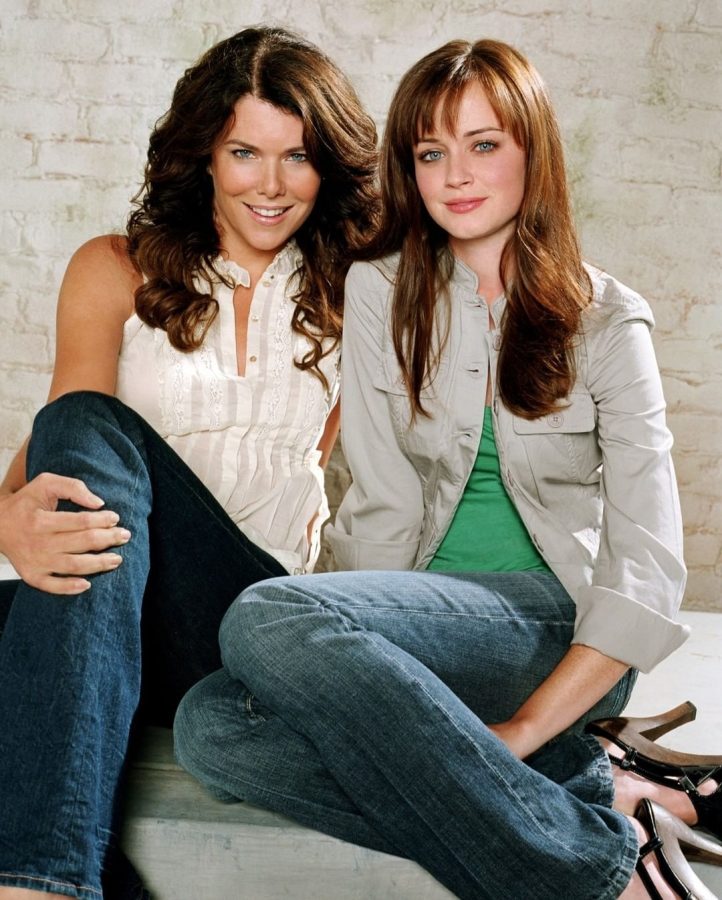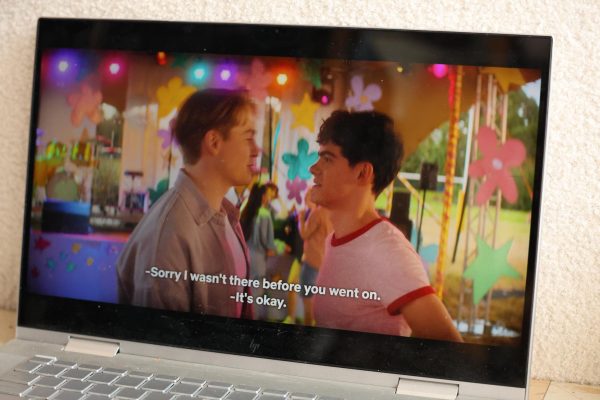My Ambivalence Towards Palladino’s “Gilmore Girls”
There’s no other show that embodies the fall season better than “Gilmore Girls,” a seven-season television series that first aired in 2000. The show follows teen girl Rory and her mom, Lorelai, as they live their day-to-day lives in Stars Hollow, a small town in Connecticut. One of my favorite fall activities is sitting in bed with a hot cup of coffee and rewatching one of my favorite episodes. Although it sounds dramatic, my life changed the first time I watched the pilot episode as a freshman in high school. I immediately found myself resonating with the show’s protagonist, Rory Gilmore. My familiarity with the characters in combination with the show’s slow pace and calming ambiance makes it the perfect show to rewatch. Never have I watched a show where I feel as if absolutely nothing is happening plot-wise, yet I still find myself coming back for more.
An element which makes the show so unique is Rory herself. While talking about “Gilmore Girls” with my high school principal a few years ago, she told me that Rory Gilmore was a revolutionary character for her time. When “Gilmore Girls” was first released, there were hardly any smart, female role models on TV. For the first time, young girls were shown a teenage girl who spent her Friday nights doing homework, loved to read and whose best friend was her mom. These aspects of Rory’s character are what make her so special to so many fans of the show, myself included. Although the “smart girl” is a common trope in television nowadays, Rory Gilmore was one of the first characters in television who showed young girls that it was okay to be a bit of a nerd.
Beginning the show my freshman year of high school, I feel as if I’ve grown up alongside Rory. Since the series follows Rory throughout high school and college, I’ve paralleled my life with hers — especially going through the transition from high school to college. For example, one of Rory’s main attributes is her passion for journalism. I’m not going to lie, joining the Ram may have been partially motivated by Rory’s time on the Yale newspaper (and my own love for writing, I guess). In all seriousness, Rory joining the newspaper as a shy, anxious freshman at any Ivy League school inspired me to try something new last year by joining the Ram, despite also being an anxiety-ridden freshman.
Similarly, one of my favorite episodes is when Rory and her best friend, Paris, spontaneously decide to go to Florida for spring break. The pair spends their first night sitting alone in their hotel room, eating pizza and watching movies. I watched this episode the other night, while laying in bed at 10 p.m. on a Friday night. Hearing music blasting from the O’Hare hallway and the chatter of people next door while simultaneously watching Rory and Paris spend spring break eating pizza suddenly erased my FOMO. Sometimes, I’d rather be in bed watching TV and “Gilmore Girls” reminds me that there’s nothing wrong with that.
Before this article turns into an ode to Rory Gilmore, it’s necessary to acknowledge her flaws.
Rory’s character can be frustrating. While her ambition is something viewers admire about her, her perfectionism leads to her downfall. For example, during Rory’s freshman year at Yale, she gets a D on a paper and, as a result, her professor suggests she drop the class to lighten her course load. After years of being crushed under academic pressure, Rory snaps and is sent into a spiral. She argues with her professor, insisting that she can handle all six of her classes, she cries and she calls herself a failure.
On par with the freshman year experience, by the end of my first week at Fordham I found myself crying on the phone to my mom. I felt as though I were an imposter; everyone had friends already, all my classmates seemed smarter than me and all I wanted to do was go home to my mommy. Rory’s first breakdown was a few weeks into her freshman year. “Gilmore Girls” realistically paints a portrait of a typical college student; I didn’t have anything figured out freshman year and neither did Rory.
Flash forward a few years later, while completing a competitive journalism internship, Rory is told that she doesn’t have what it takes to be a journalist which leads her to steal a yacht, spend a night in jail and drop out of Yale. From this point onward in the show, Rory lacks clear direction and motivation, qualities which defined her character in earlier seasons.
At this point in the series, I have more of an issue with the writers rather than with Rory herself. What precedent is the show setting for the young girls watching: girls who are academically-centered are destined to have a breakdown? Hard work doesn’t pay off because you’re going to fail anyways? Rory’s breakdown itself isn’t an issue; as Rory said herself, “A little nervous breakdown can really work wonders for a girl.” Rory was supposed to be a positive role model, so why is her character so flawed?
Despite my frustrations with the show, I find myself rewatching it again and again. Partially, what makes the show so addicting is the fact that Rory is such a flawed protagonist. Not only can I see myself in Rory’s love for books or her quiet demeanor, but I can relate to her when she grapples with making the right decision or struggles to navigate change. The uncertainty Rory feels about her future in later seasons is extremely relatable to a college student. Although I’ve never stolen a yacht or dropped out of college (so far), I connect with Rory’s growing pains and her bumpy journey from adolescence into adulthood. “Gilmore Girls” may forever be my comfort show.

Sofia Donohue is a senior from Kensington, Md., who is majoring in English with a double minor in history and Italian. She first joined the Ram as a digital...













































































































































































































